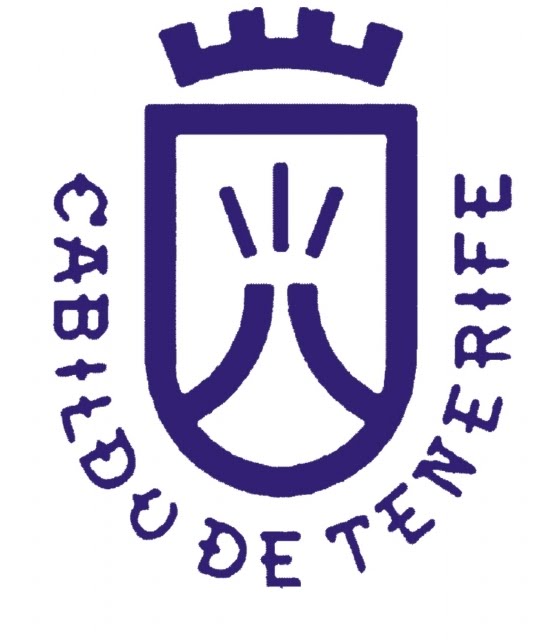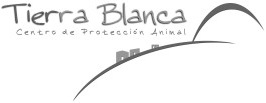Normative
- LAW 8/1991, of 30 April 1991, on the animal protection.
- DECREE 117/1995, of May 11 1995, which approves the Regulation of Law 8/1991, of April 30 1991, on Animal Protection and other aspects related to them.
- ORDER of 29 December 1995, which regulates the operation of the Registry of Canary Islands Collaborating Associations for Pet Defense and Protection.
- ORDER of 23 October 1996, which regulates the operation Canary Islands Pet General Register.
- ORDER of 29 June 1998 determining the identification marks and methods for dogs and cats.
- CORRECTION of errors of the Order of 29 June 1998, which determines the identification marks and methods for dogs and cats.
- LAW 7/1998, of 6 July 1998, Canary Islands Hunting.
- ORDER of 18 March 1998, jointly by the Ministry of Agriculture, Fisheries and Food and the Ministry of Health and Consumption, which regulates the Antirabies Campaign.
- LAW 50/1999, of 23 December, on the Legal Regime of Possession of Potentially Dangerous Animals.
- ROYAL DECREE 287/2002 of 22 March 2002, which develops Law 50/1999, of 23 December 1999, on the legal regime of the potentially dangerous animals possession.
- COMMISSION DECISION of 26 November 2003 laying down a passport model for the intra-Community movement of dogs, cats and ferrets.
- REGULATION (EC) No 998/2003 of the European Parliament and of the Council of 26 May 2003, as regards the approval of animal health requirements applicable to the non-commercial movement of pet animals and the amendment to the Directive 92/65/EEC of the Council.
- COMMISSION REGULATION (EU) No 388/2010 of 6 May 2010 implementing Regulation (EC) No 998/2003 of the European Parliament and of the Council as regards the maximum number of pet animals of certain species Species that may be subject to non-commercial movement.
- REGULATION (EU) No 438/2010 OF THE EUROPEAN PARLIAMENT AND OF THE COUNCIL of 19 May 2010 amending Regulation (EC) No 998/2003 on the animal health requirements applicable to the movement of pet animals without Commercial mood
Host Protocol
In general, the steps for dog reception are as follows:
- City councils will contact the Center to notify the arrival of a dog by municipality staff hired for this purpose.
- Reception of the dog. The city council person will deliver a police investigation in which the dog location data are included.
- A signed copy of this record will be given to this person.
- On the same day, a general examination will be carried out on the dog and it will be checked whether or not it has a microchip or tattoo (if it has one, the staff will attempt to locate the owner).
- The dog will then have an internal and external deworming.
- CPA staff looks for the dog a location to spend the 21-day quarantine. If it is a puppy or if it is detected any pathology it will be installed in the hospital.
- Vaccination, sterilization and filarial worms testing will be performed in the following days.
- After quarantine time, it is transferred to an appropriate kennel and the dog is ready to be adopted.
Adoption protocol
Visiting hours: Monday to Sunday from 10 a.m. to 3 p.m. and Thursday until 7 p.m. During these hours the visit can be accompanied by a member of the staff. The visit will last about 20 minutes.
Adoption timetable: Monday to Friday from 10 a.m. to 3 p.m.. At this time you can visit the CPA and formalize the adoption. If the visit is made outside these hours, contact should be made with the center to request an appointment with the veterinarian and can carry out the adoption procedures. This is important since the veterinarian can be in the operating room or performing treatments, tasks that assume that he does not have immediate availability.
At the time of the visit, the worker will be informed of the needs and characteristics of the prospective adopter, advising the worker to try to find a suitable dog.
Once the dog has been chosen, the adoption document and the form of the Canary Register of Animal Identification (ZOOCAN) will be signed. If the animal is not up to date of its sanitary state, the adopter will be informed of the waiting time to be able to pick it up.
Adoption concract
It is a document that identifies the animal and reflects the terms to which the adopter must commit:
- Comply with the current regulations regarding animal welfare, animal protection and responsible holding of domestic animals.
- Keep C.P.A Tierra Blanca informed of the loss of the animal in a maximum term of 48 hours.
- Inform C.P.A. Tierra Blanca of all possible owner changes of the animal and modify the contact information whenever necessary.
Furthermore, the delivery conditions regarding health status and documentation appear.
Once the dog is delivered to the adopters, they will be able to send photos and to keep informed of the animal physical condition to the person in charge of the center.
Admission template as volunteer
Individuals who wish to register as volunteers in the CPA must complete the "Admission template document as volunteer in the CPA”, indicating personal data, safety observations and the preferences of activities to be carried out.
Volunteer rules
Volunteering is always a personal and free choice for solidarity.
CPA volunteers are governed by the "Volunteering Rules":
Regarding the organization:
- Generous commitment of the best of oneself. Act with professionalism, humanity and efficiency in the tasks entrusted.
- Create a climate of mutual respect.
- Be patient when waiting for results of actions performed.
- Make a responsible use of material assets (belts, office supplies, hygiene products, etc.) that the organization makes available to the volunteer.
- Place straps and collars in place once used. The following volunteers will have them on hand for their use.
- Always ask workers or volunteers first what they need or what work they want to do.
- Respect and obey veteran volunteers as they can help you coping with dogs.
- It is strictly forbidden to access hospitalization, operating room, administration and dining room.
- Eating, drinking or smoking at the CPA it is not allowed while tasks are performed.
- You can not enter under the effects of alcohol or drugs.
- Droppings and any residue generated during the visit must be collected.
- The volunteer schedule will be the same as the one for the attention to the public (always arrive at the agreed time and do not leave after the hours of attention to the public).
- It's not authorized to intervene in the decisions taken by the Center's Management (there is a forum to channel these issues through periodic meetings involving the interested parties).
- No orders or reprimand should be given to the CPA employees and no interfering or impeding should be done with the duties of the Operators and the Center Manager.
- The awnings must be closed before leaving because the wind can break them.
- You must fill out a form with your information before going to the center as a volunteer.
- For your safety, animals safety and workers safety instructions of the workers must be followed.
Regarding the treatment with dogs:
- Do not yell at dogs. Speak in a calm and relaxed tone. Thus alterations are avoided.
- Do not force any dog out. If you show him the leash and the dog does not want to, leave it alone.
- Do not take more than one dog per person. It is not known what their reaction will be.
- Do not let dogs out of the playgrounds.
- Do not mix dogs on or off playgrounds.
- It is forbidden to give treats, except those that are in the center.
- Under no circumstances shall animals be fed either inside or outside kennels and courtyards.
- It will always try to get the whole box, dog by dog. There are plastic sheets and markers for annotations.
- Respect and follow the instructions of the operators and posters in respect of the character of the dogs, so that not all can be manipulated.


